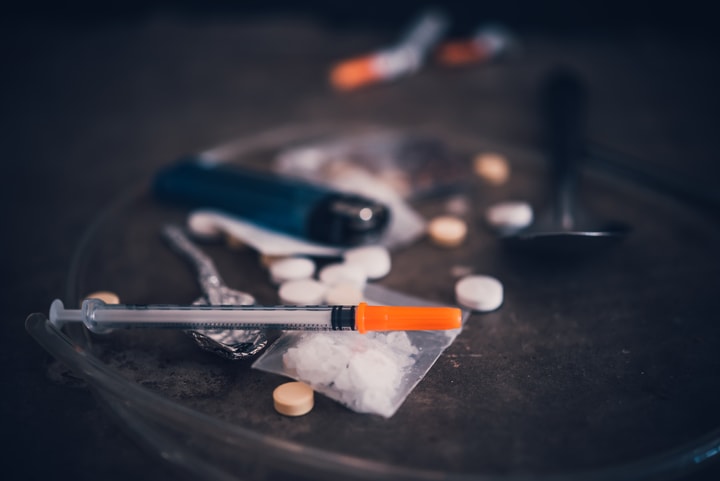
Texas imposes some of the most restrictive drug laws in the nation. Anyone facing a drug charge needs a criminal defense lawyer on their side to level the playing field against the experience of the prosecutor’s office and the strict laws of Texas.
A first-time drug possession charge in Texas can lead to penalties from a Class B misdemeanor to a first-degree felony. Sentencing depends on the type and amount of the drug. Offenders may face fines, probation, mandatory drug education, or jail. Courts may offer diversion programs for eligible first-time offenders.
Trying to fight a drug charge without legal representation puts you at a disadvantage and increases the likelihood of receiving the maximum possible penalties.
In Texas, you can expect harsh penalties from the Texas Penal Code and a jury pool that is more conservative than many other states.
Contact a South Texas drug crime lawyer at Austin Hagee Law Firm today to schedule a free initial consultation.
Key Takeaways
- Possession of a Controlled Substance in Texas requires proof that you knew the substance was illegal and either had it physically (“actual possession”) or had care, custody, and control (“constructive possession”).
- As a first-time offender, possession of certain amounts of Group 1 or 2 substances—if over specific thresholds—can escalate a charge to a third-degree felony, carrying substantial prison time and fines.
- Under first-time drug possession charges in Texas, even with felony-level exposure, there are sentencing alternatives such as probation, community supervision, diversion programs, or plea deals that might avoid maximum penalties
Overview of First-Time Drug Possession Charges in Texas
Possession is the lowest level of drug crime in Texas. Possessing a controlled substance means that you knew the substance was illegal and either 1) had the controlled substance on your person, or 2) had knowledge that it was in your presence and had care, custody, and control over the substance. The first scenario is called actual possession and the second is called constructive possession.
Possessing less than one gram is a State Jail Felony, the most common felony drug offense in Texas. These cases often result in probation, especially for individuals without prior state jail possession charges.
Marijuana Possession
Possession of marijuana is punished differently than other controlled substances.
Possessing less than two ounces of marijuana in Texas is a Class B misdemeanor. A Class B misdemeanor is punishable by up to 180 days in jail and a fine of up to $2,000. Possession of between two and four ounces of marijuana is a Class A misdemeanor.
A Class A misdemeanor is punishable by up to one year in jail and a fine of up to $4,000. Amounts larger than 4 ounces can be charged as a felony, depending on the amount.
Texas separates other drugs into groups. The penalties for drug possession vary based on what group the possessed substance falls into.
See why we have a perfect 5-star rating on Google from reviews of 170+ of our past clients:
Possession of Group 1 or 2 Controlled Substances
The following substances fall into group 1:
- Methamphetamine,
- Heroine,
- Cocaine, and
- Ketamine.
The following substances fall into group 2:
- Ecstasy,
- Concentrated marijuana oil like that found in a vape pen, and
- PCP.
LSD is a group 1A substance and is subject to the same penalties as those imposed for group 1 and 2 substances.
In Texas, possession of a controlled substance of less than 1 gram of a group 1 or 2 substance is a state jail felony.
Possession of Group 3 or 4 Controlled Substances
The following substances fall into groups 3 and 4:
- Xanax;
- Valium;
- Ritalin; and
- Compounds containing Dionine, Motofen, Buprenorphine, or Pyrovalerone.
Possession of less than 28 grams of a group 3 substance is a Class A misdemeanor, while possession of less than 28 grams of a group 4 substance is a Class B misdemeanor.
The sooner you take action, the better your chances. Reach out to Austin Hagee Law Firm today.
Do First Time Drug Offenders Go to Jail in Texas?
Texas drug conviction penalties vary based on the quantity and type of drugs you are accused of possessing. Many drug convictions in Texas carry the potential for jail time, even for first-time offenders.
However, if you were merely possessing a controlled substance and not involved in other types of activities, it is likely that you may be able to get some form of community supervision.
Possession of even one gram of a group 1 or 2 substance is a state jail felony. A state jail felony is punishable by up to two years in prison and a fine of up to $10,000.
Possession of between one and four grams is a third degree felony. A third-degree felony is punishable by between two and ten years in prison and a fine of up to $10,000.
Possession of less than 28 grams of a group 3 substance is a Class B misdemeanor, punishable by up to six months in jail. Possession of between 28 and 200 grams is a third-degree felony.
If someone has large quantities of an illegal substance in their possession, law enforcement may seek other charges, like possession with intent to distribute or manufacturing with intent to deliver. These charges carry harsher penalties than a simple possession conviction.
How to Beat a Drug Possession Charge in Texas
In some scenarios, a legal defense may negate an element of the possession charge and help in negotiations with the prosecutor. Common legal defenses to drug possession charges include:
- The substance you possessed was not illegal;
- You had a valid prescription for the controlled substance in your possession;
- There are not sufficient affirmative links, providing that you knowingly possessed the substance;
- The controlled substance belonged to someone else; or
- The controlled substance was planted on you without your knowledge.
If a legal defense applies to your case, we will create a strong legal strategy and work with the prosecutor to get your charges reduced or dismissed. Contact Austin Hagee Law Firm, so a member of our team can review your case.
First Time Drug Possession Charges in Texas? Contact Austin Hagee Law Firm Today to Discuss Your Case
A drug conviction can affect your ability to get a job and cause irreparable damage to your reputation. A qualified possession lawyer can prepare a defense strategy that emphasizes the weaknesses in the prosecution’s case and negotiate with the prosecutor to reduce your charges or dismiss them entirely.
As former prosecutors, our attorneys at Austin Hagee Law Firm know how district attorneys use circumstantial facts and weak evidence to obtain convictions. We will highlight the weaknesses in the state’s case and work tirelessly to protect your rights.
Contact our office today to schedule a free initial consultation with a drug possession attorney in Texas.
Where to find our San Antonio, TX office:
Frequently Asked Questions
Many people do not know what to expect when facing their first drug possession charge. Unfortunately, the criminal justice system does not offer a quick how-to guide to walk you through the process. Our experienced attorneys at Austin Hagee Law Firm provide answers to some commonly asked questions below.
Will I Get Probation for First Time Possession?
It is not a guarantee that you will receive a probation sentence after a first-time possession charge. However, probation is a sentencing option for the judge and is available to the prosecution in plea bargaining.
In some cases, the prosecutor will offer a plea deal in exchange for a probation sentence. Accepting a plea deal can eliminate the possibility of spending time in jail and relying on a judge or jury to determine your fate or punishment.
An individual without a criminal record is more likely to receive a probation sentence than someone with an extensive criminal history.
Can I Use Marijuana in Texas with a Valid Medical License?
Texas does not recognize medical marijuana licenses. Even if you have a prescription for medicinal marijuana in another state, you cannot possess or use marijuana in the State of Texas.
The fact that an individual did not know their medical marijuana license is invalid in Texas is not a defense to marijuana possession. Texas now has a limited medical marijuana program, but an individual must be properly accepted into the Texas program to be able to use medical marijuana in Texas.
